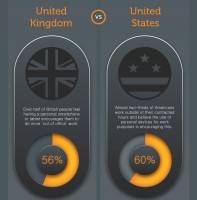June 25, 2013
“Time-bomb” of British workers unhealthy and old before their time
Bad lifestyle choices are shaving over four years off British employee’s lives, leaving them unhealthy and old before their time and creating a “time-bomb” for UK employers. According to the wellness survey of 10,000 employees in the UK, 86 per cent of British workers have an average Vitality (health) Age of 4.1 years older than their real age due to unhealthy lifestyles. Vitality Age gives an estimate of years of life lost or gained by taking into consideration the presence or absence of certain risk factors. Nearly a third (31.2 per cent) of employees have three or more risk factors, putting them at serious risk of ill health, and the biggest contributing factors for a higher Vitality Age are lack of physical activity and being overweight.





















June 25, 2013
What Jeremy Clarkson can’t teach us about workforce productivity
by Mark Eltringham • Comment, Workplace
In 2011, one of Top Gear’s regular bits of lazy casual racism caused a bit more fuss than the rolling of eyes it typically deserves. The presenters had mocked a Mexican sports car with Richard Hammond – who has never said anything interesting or funny in his life – claiming that ‘cars reflect national characteristics. A Mexican car’s just going to be a lazy, feckless, flatulent oaf with a moustache, leaning against a fence asleep, looking at a cactus with a blanket with a hole in the middle on as a coat.’ There was a bit more of this kind of stuff with Jeremy Clarkson suggesting that the Mexican ambassador to Britain would be too lazy to make any kind of complaint. He was wrong about that (he did) and they were all wrong about Mexicans anyway because according to a new report into global productivity, Mexico has the world’s most productive workforce.
(more…)